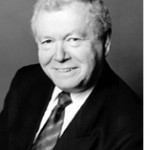By Rabbi Dow Marmur

JERUSALEM — Any Jew who in the name of feigned or real commitment to Judaism wanted to badmouth Reform Judaism has been given a welcome opportunity to do so by Michael Chabon, the Pulitzer Prize winning American-Jewish writer. He was invited last month by the Hebrew Union College, the Reform Seminary, in Los Angeles to address recipients of academic degrees (not the ordination of rabbis).
Chabon spoke against boundaries. What first sounded like a critique of what’s happening at Israel’s border with Gaza soon became a beautifully formulated diatribe against any kinds of borders that surround Judaism and Jews – from the eruv that Orthodox Jews need to be able to carry things on Shabbat to in-marriage with many stops between. Though he didn’t speak on behalf of the College, but as its guest, and not on behalf of the Reform movement – of which, as far as I know he isn’t a member- opponents with agendas of their own chose to understand it otherwise.
But one Orthodox rabbi, Elli Fischer of Modiin in Israel, was among the few who responded responsibly by citing traditional Jewish teachings. His essay, “Michael Chabon’s Sacred and Profane Cliché Machine” can be found on the Jewish Review of Books website.
Fischer shows, for example, that Chabon’s attack on the eruv arises out of ignorance. For though the eruv delineates an area in which Jews can carry things on Shabbat, it’s not a wall but, in fact, a door: “Creating an eruv involves negotiation with all those, including non-Jews and non-observant Jews, who share that space. The ‘walls’ of the eruv are, in fact, generally not walls at all. They are comprised only of posts and wires, on the premise that two posts with a lintel form a doorway. The eruv circumscribes a community with walls that are entirely doors.”
So Rabbi Fischer asks: “Shouldn’t this be exactly what Chabon wants? Doesn’t an eruv demonstrate that a Jewish enclave can be open and permeable in either direction? The very idea of a wall made of doors undermines Chabon’s dichotomies.”
This is also Fischer’s answer to Chabon’s advocacy of mixed marriage. He agrees with Chabon that Jewish marriage shouldn’t be the result of forced endogamy but “arise out of the love between two people who speak a common Jewish language, celebrate and mourn according to the same calendrical rhythm, and participate in a shared culture.”
Rabbi Fisher concludes: “Judaism survives thanks to the depth, beauty, and complexity of its traditions, not because of hysterical demands for in-marriage between different Jews.” Instead of condemning Judaism out of ignorance, which is the implied criticism of Chabon’s speech, “We must choose knowledge over ignorance. The result will be a creative, confident Judaism that is not afraid of encountering and absorbing from other cultures and is willing to influence them in turn- a robust Jewish community surrounded by walls that are doors.”
Needless to say, Chabon isn’t the only American Jew who’d like to abolish boundaries, i.e., to assimilate. No doubt, there’re such Jews within the Reform Movement, too. But to engage in serious debate, the way Rabbi Fischer has done, is more wholesome and more Jewish than shrill and baseless self-serving accusations or defensive “explanations.” Unfortunately, most of the debate both within Reform Judaism and outside hasn’t lived up to the standards set by this Orthodox rabbi.
*
Rabbi Marmur is spiritual leader emeritus of Holy Blossom Temple in Toronto, Canada. Now a resident of Israel, he may be contacted via dow.marmur@sdjewishworld.com
I personally don’t get the flap. Chabon speaks for no one. He’s another Jew with an opinion, one that some like and some don’t. Revisionist Jews already allow and applaud intermarriage and assimilation. The orthodox don’t, haven’t and never will.
He gave a speech at the reform “seminary” and simply played the tune the crowd is already singing to the point that intermarriage rates for these people top 80% and less than ten per cent of their grand children will be or even identify as Jewish. Its sad but people make choices.
Doesn’t require a response. Maybe saying kaddish for their population might be more appropriate.